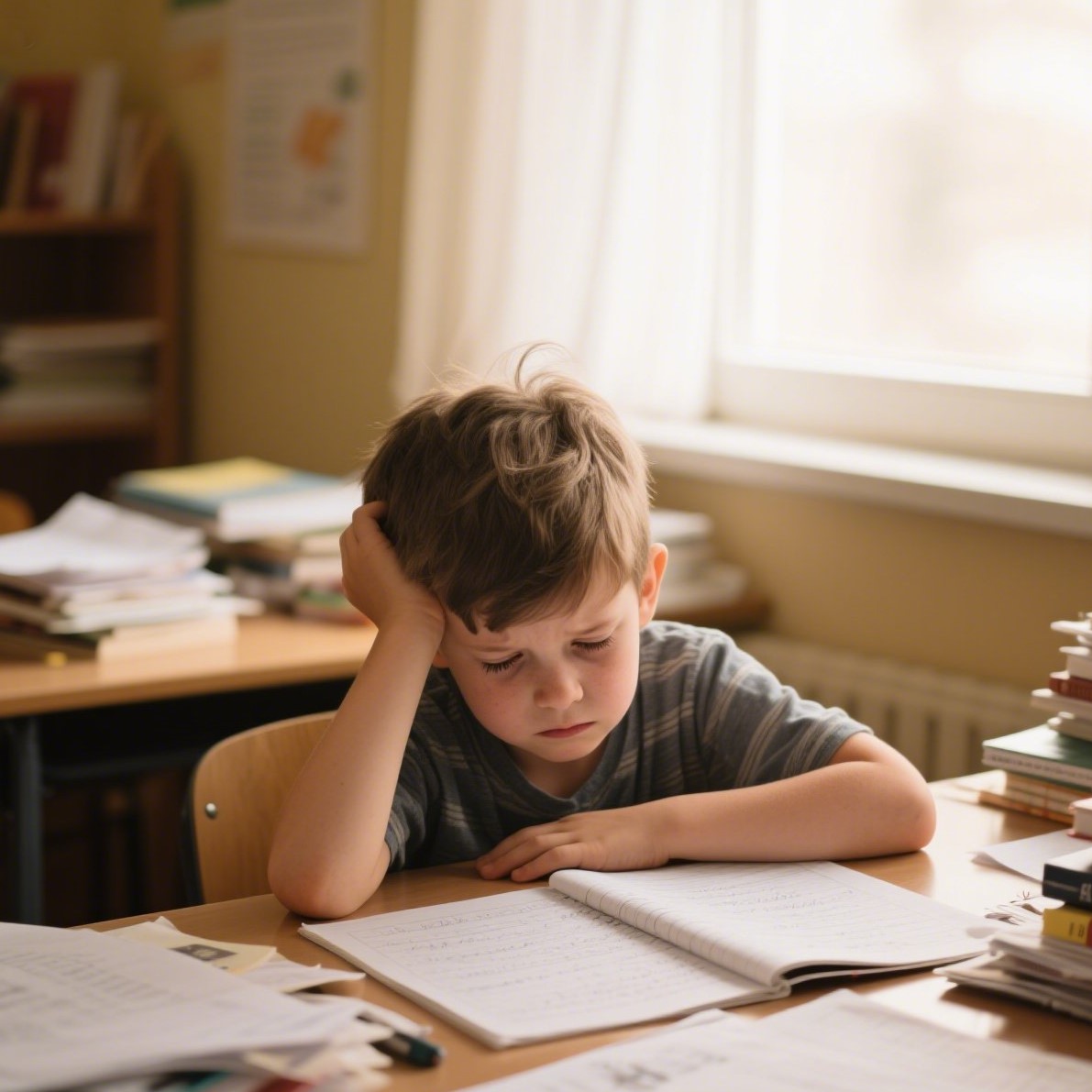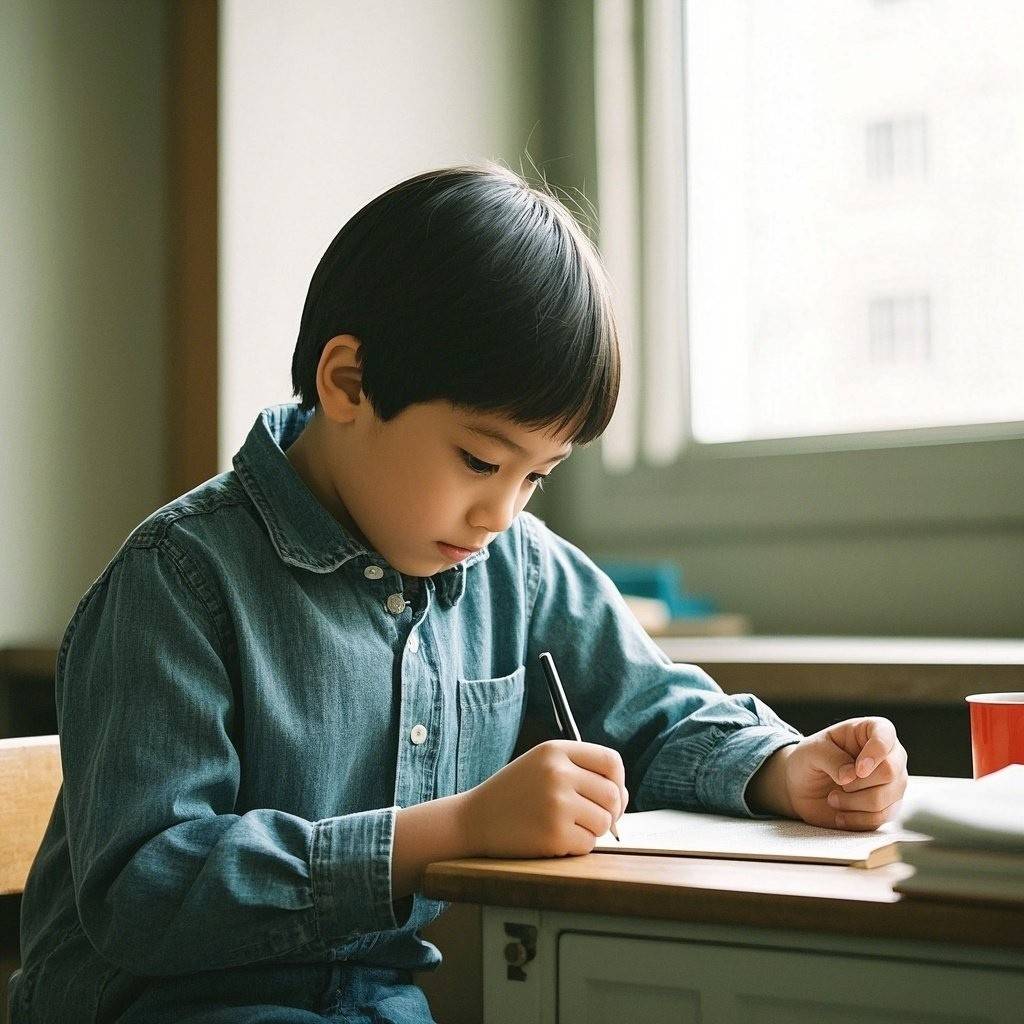It’s 6 PM.
The table is set. The house is calm(ish). But somewhere between dinner and bedtime… a storm brews.
“Time to do your homework!” you say.
And just like that — the eye-rolls, the sighs, the chair-spinning, the “I just have to get water again” routine begins.
If you’re parenting a child with ADHD, this scene may feel way too familiar. Homework can turn into a nightly battle, not because your child is lazy, rebellious, or irresponsible — but because their brain is wired differently.
So why is homework such a struggle for kids with ADHD? Let’s dive into what’s really going on — and how you can bring more peace (and productivity) to those after-school hours.
🧠 1. Executive Function: The Brain’s Project Manager is on Vacation
ADHD affects the part of the brain responsible for executive function — a mental toolbox for planning, focusing, remembering, and managing time.
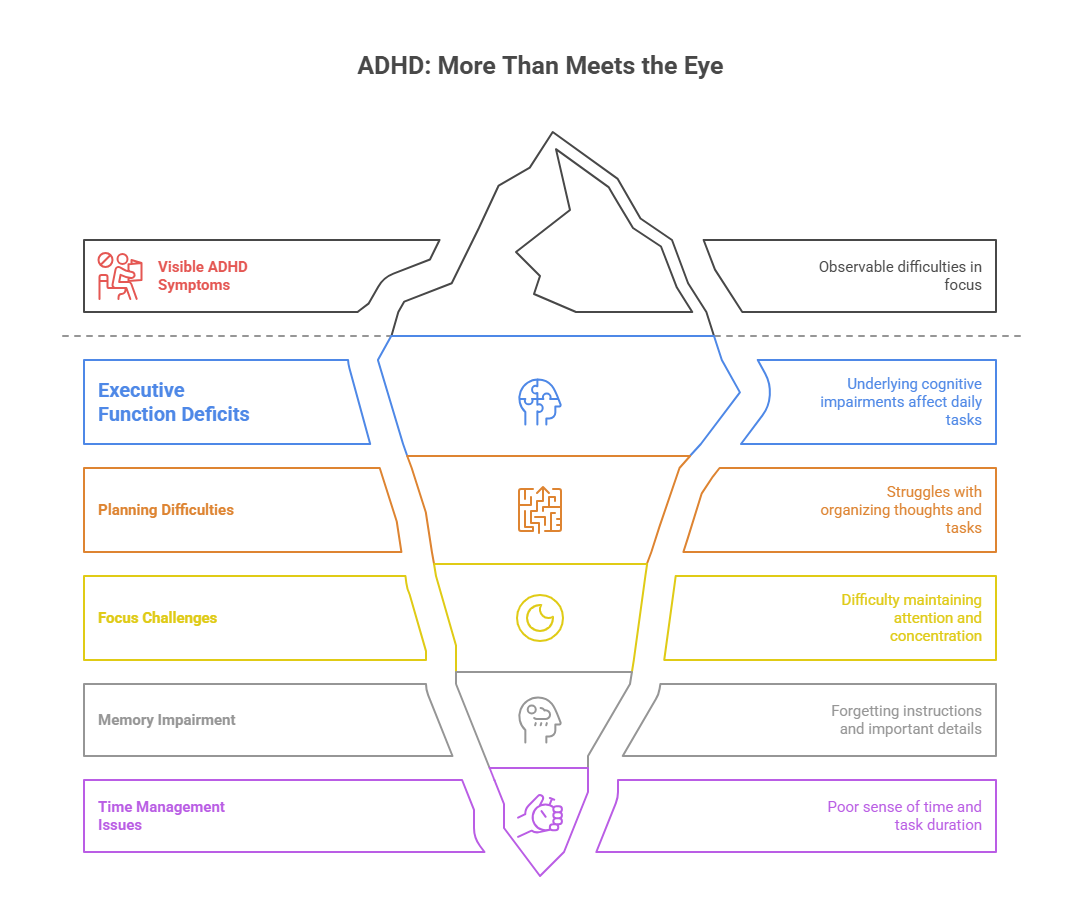
Without strong executive function, your child might:
- Forget the assignment five minutes after hearing it
- Procrastinate because starting feels overwhelming
- Get distracted halfway through a sentence
- Lose their pencil five times in an hour
So when a kid with ADHD sits down to do homework, it’s not just about doing math — it’s about organizing thoughts, following directions, resisting distractions, and managing frustration. That’s a lot of mental heavy lifting.
🌀 2. Boredom Feels Like Pain
Imagine trying to do something that feels impossibly boring — but magnify that boredom by ten.
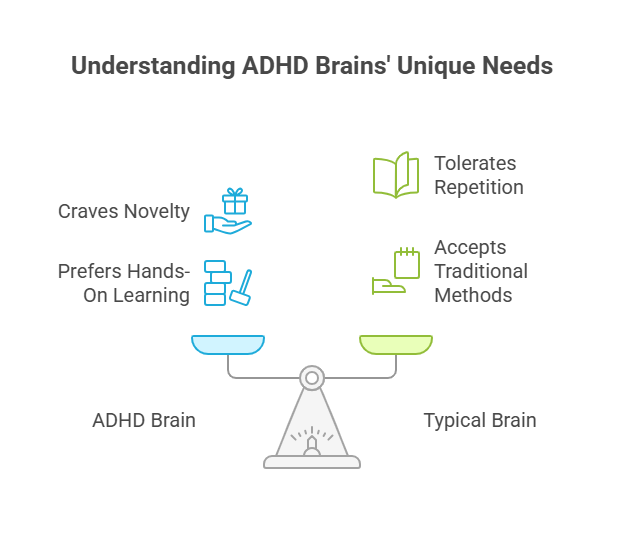
That’s what many kids with ADHD experience. Their brains crave novelty and stimulation. Repetitive tasks like worksheets or textbook reading can feel like torture.
It’s not about attitude. It’s about neurochemistry.
🧠 Their brains are wired for movement, curiosity, and hands-on learning. Sitting still with a pencil? That’s like asking a fish to climb a tree.
⏳ 3. “Time” is an Abstract Concept
Kids with ADHD often struggle with time blindness — they don’t naturally sense how long things take.
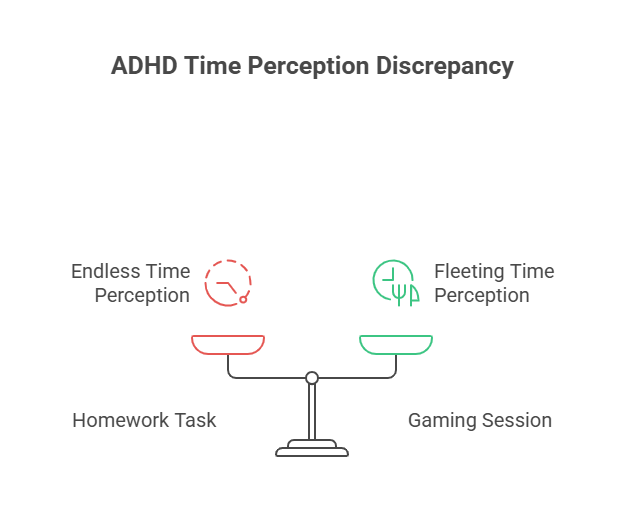
A 20-minute homework task might feel endless.
A 2-hour gaming session feels like 10 minutes.
This disconnect makes it hard for them to plan, pace, and complete assignments — especially without constant reminders.
🔋 4. They’ve Used Up All Their “Focus Fuel” at School
By the time they come home, your child’s brain is mentally exhausted.
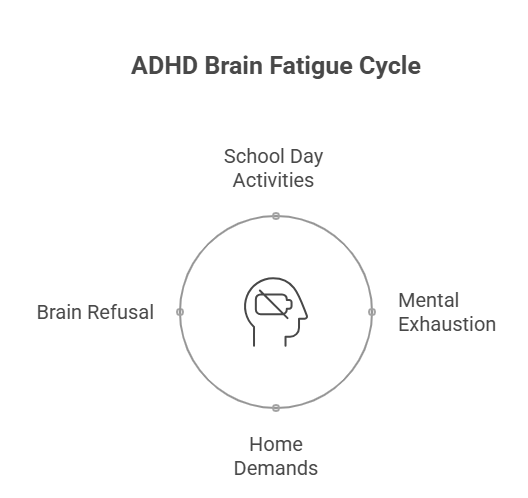
They’ve spent the whole school day sitting still, trying to focus, managing impulse control, and coping with sensory overload. That’s a full-time job for an ADHD brain.
So when they get home and you’re asking them to do more of the same, their brain says:
“Sorry, I’m out of battery.”
🤯 5. Shame, Anxiety, and Frustration Get in the Way
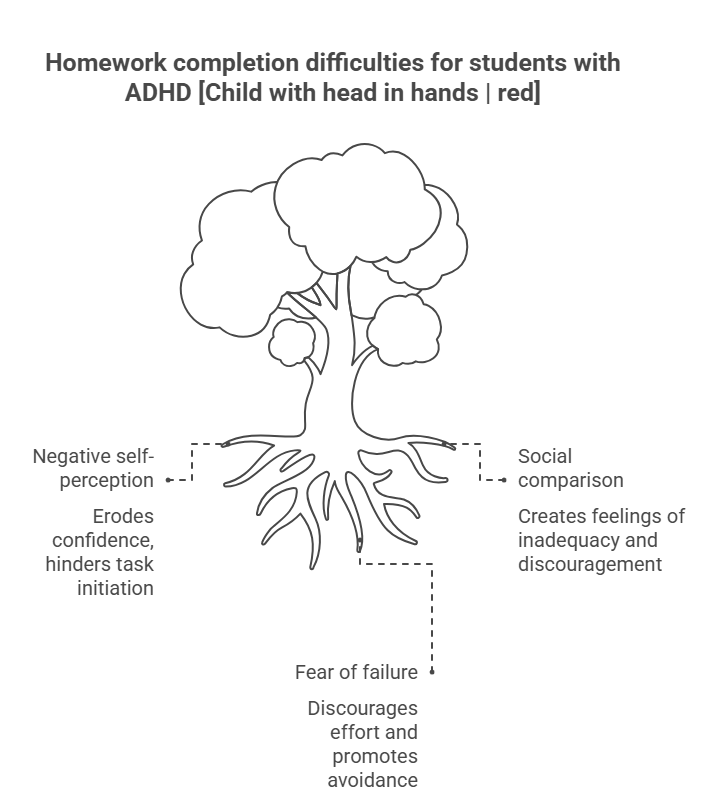
For many kids with ADHD, school feels like a constant reminder of what’s hard. Every unfinished worksheet, every “focus more” comment, and every red mark on a quiz chips away at their self-esteem.
By the time homework rolls around, the emotional baggage is heavy:
- “I’m not good at this.”
- “Everyone else finishes faster.”
- “Why even try if I’ll mess it up again?”
This emotional storm makes it even harder to sit down and begin.
🛠️ So… How Can You Help?
The goal isn’t just to get the homework done — it’s to support your child in a way that builds confidence, skills, and connection.
Here are some creative, practical strategies:
🌟 1. Break It Down Like a Boss
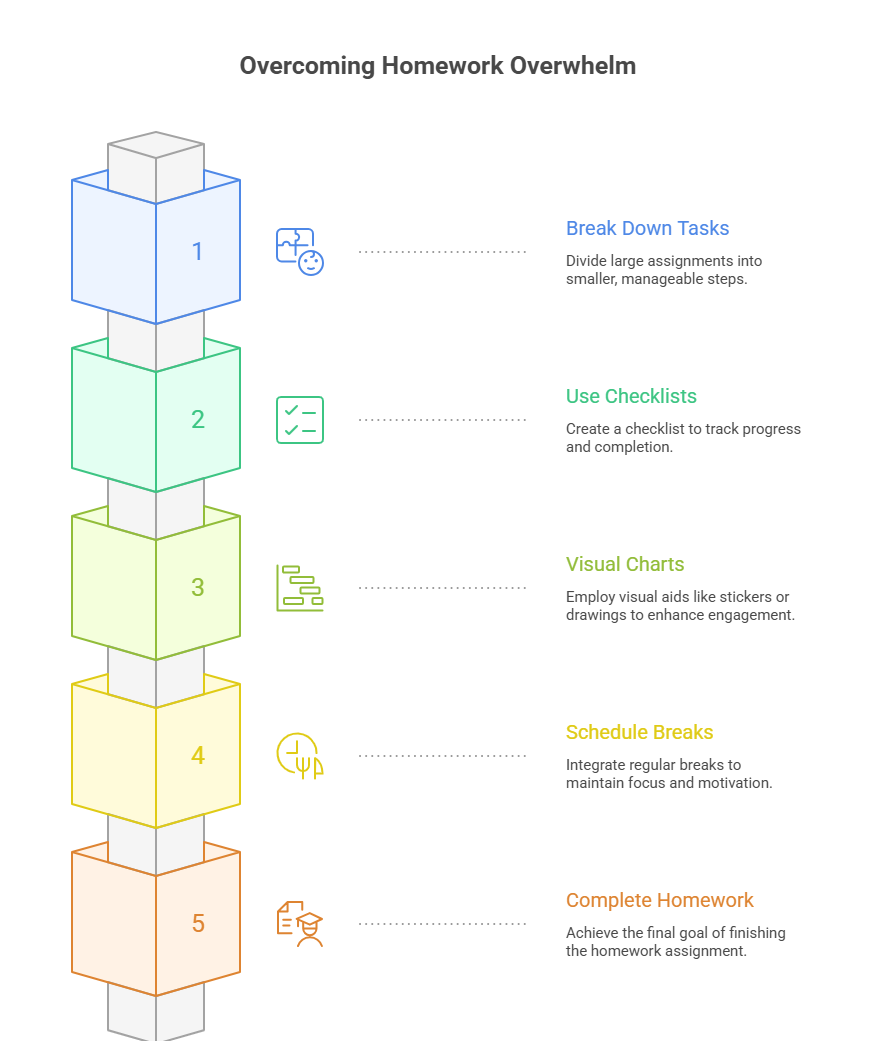
Large tasks feel overwhelming. Help your child by breaking homework into bite-sized steps. Use a checklist or even a visual chart with stickers or drawings.
💡 “First we do 2 math problems, then a snack. Then 2 more, then break time.”
⏰ 2. Use Timers and Races
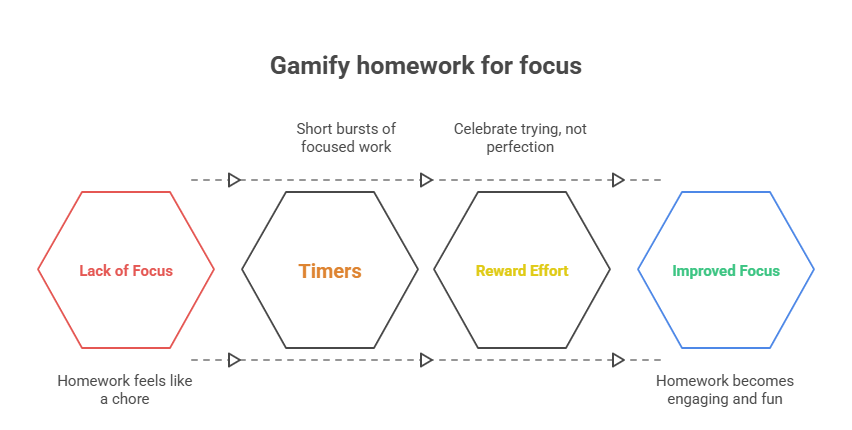
Turn homework into a game. Use timers (5-10 minutes) to challenge focus in short bursts — think “homework sprints.” Reward effort, not perfection.
💡 “Let’s see how much we can get done before the timer beeps!”
🧩 3. Let Them Move
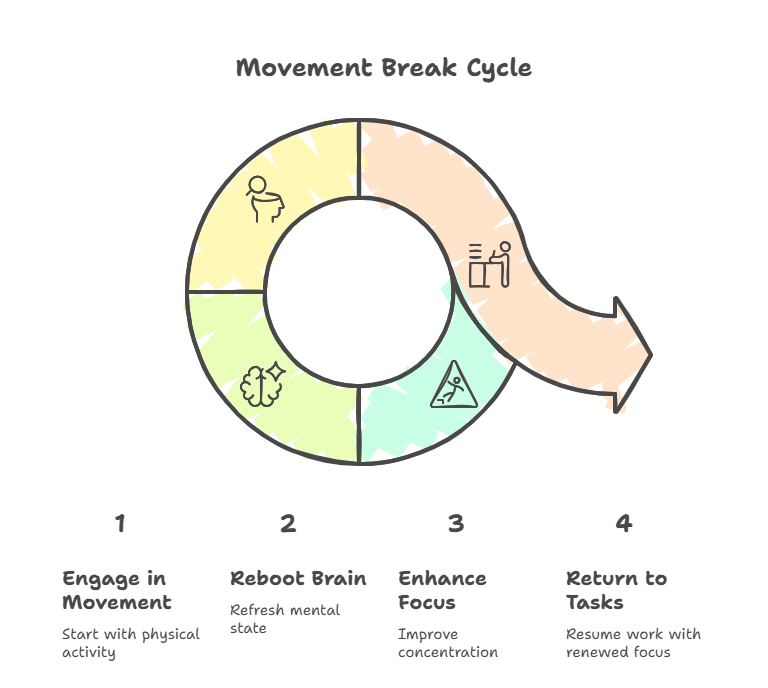
Allow movement breaks. Jumping jacks, silly walks, or bouncing on an exercise ball between tasks helps “reboot” the brain.
💡 A little movement often brings more focus, not less.
✍️ 4. Designate a Homework Zone
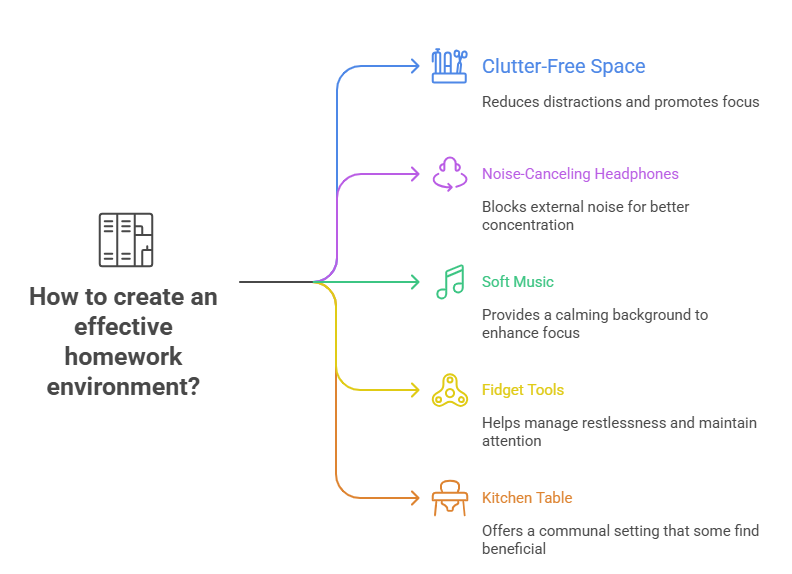
Pick a clutter-free space with minimal distractions. Try noise-canceling headphones, soft music, or fidget tools if they help. Some kids focus better at the kitchen table than alone in their room.
💬 5. Empathize First, Coach Second
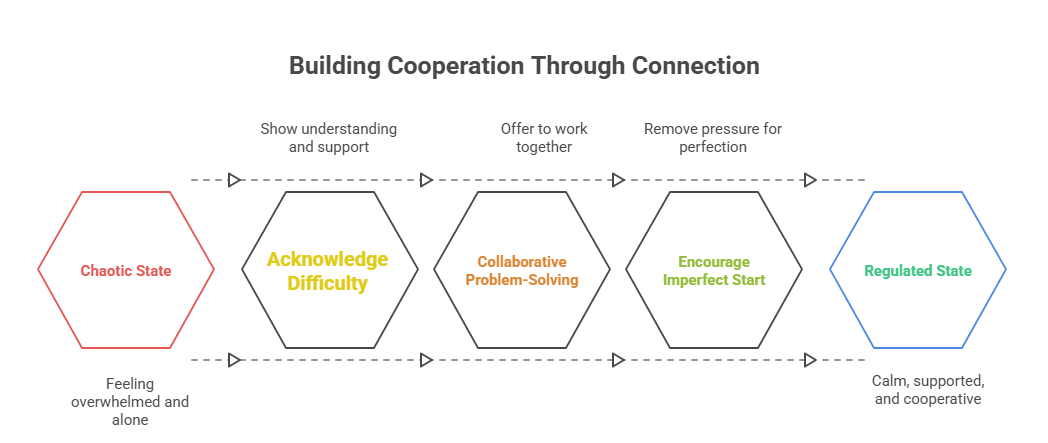
Instead of “Why can’t you just finish it?”, try:
- “I know this is hard, but you’re not alone.”
- “Let’s figure it out together.”
- “You don’t have to be perfect — just start.”
Connection builds cooperation. Your calm helps regulate their chaos.
💬 Final Word: It’s Not a Discipline Issue — It’s a Brain Difference
Kids with ADHD don’t need harsher rules or more lectures. They need understanding, structure, and support tailored to how they think and feel.
Homework might never be their favorite part of the day — and that’s okay. But with the right strategies, empathy, and rhythm, you can turn nightly meltdowns into moments of growth, connection, and even success.
Remember: You’re not just helping them finish a worksheet.
You’re helping them believe they can.
And that’s the real homework.


